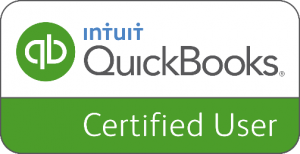
A financial year, also known as a fiscal year, is the period used by governments for accounting and budget purposes. It is not the same concept as a calendar year which is the one-year period that begins on 1st January and ends on 31st December, based on the commonly used Gregorian calendar. A financial year is often different from the calendar year, with a twelve month period running from 1st March to 28th (or 29th) February being very common in South Africa. Some companies run a financial year from 1st July to 30th June, which is inherited from the British system. Other companies run their financial year to align with the calendar year.
What is important about a Financial Year?
From a statuary point of view, it forms the period over which a company is taxed. It also is a method of measuring the profitability over a set period and thus provides the ability to compare to previous financial years. This does not mean that measuring progress month on month should be neglected, because if a business is not monitored monthly, then there is a very strong chance that the financial year’s results will be a surprise, and not necessarily a pleasant one.
There are three more major reasons why your financial year, and therefore year end results, should be accurately represented. The first is your tax liabilities. Your final tax liabilities are based on the final outcome of your financial year’s trading and profit. The second reason is that many lending institutes (banks) require copies of your latest and/or recent Annual Financial Statements (AFS), since the general health of the business has a bearing on the lenders’ risks and exposures. And the third reason is to ensure, according to your latest annual financial statements, that the business is indeed solvent, and if not, then the business could be deemed to be trading recklessly, with the possibility of serious legal consequences. These consequences are outside of the scope of this article, but suffice it to say that every business owner should be very mindful of possible consequences of trading when in an insolvent state.
What is involved at a Financial Year end?
The Annual Financial Statements (AFS) reports need to be prepared and extracted and, depending on the type of business, these may then need be audited or checked by an accountant. Often the accountants assist in preparing the AFS of a business. In order to make sure that the figures in the AFS reports are correct there are certain accounting procedures that need to be undertaken. These are mostly reconciliations and certain year-end adjustments.
Some of these reconciliations involve balancing subsidiary ledgers to Balance Sheet control accounts, such as:
- Customers (Debtors)
- Suppliers (Creditors)
- Bank AccountsStock on hand
- Fixed Assets and their accumulated depreciation
- Shareholders loan accounts
- VAT
Often after the information has been audited or checked by an accountant, there may be more adjusting entries which will then need to be passed. At the start of a new financial year, the Income & Expenses accounts will have a zero balance and the Balance Sheet account will all contain the carried forward figure (which includes the accumulated profits or losses) from the previous financial year. Most accounting software packages will handle this automatically as part of their Year End procedure.
All of these reconciliations and preparation of the AFS reports unfortunately take time and usually cannot be concluded before the next trading day, being the first day of the new financial year. In fact preparing the AFS reports often take several weeks and even months, and, as mentioned, usually require input from the appointed external financial officer.
How can an ERP Accounting Software Solution Help?
Having an Enterprise Resource Planning (ERP) Accounting software system will mean that information from all the different areas of the business are captured on a real time basis during the course of the financial year and because the system is fully integrated, all the information will automatically update all the necessary accounts so that the bulk of the information is already there for the AFS reports to be extracted. Additionally, making sure that most reconciliations are done on a monthly basis during the financial year means that the final reconciliations are fairly painless. There may be some year-end adjustments, such as bad debt write offs and loan account adjustments but most of the information should already be in the system. Outsource your Bookkeeping and Accounting Services to Skytrax Accounting and Payroll to ensure a Seamless and Pain free external audit.
Most accounting software solutions will provide the ability to process in the new financial year, while allowing for work to be done on the previous year in order to finalise the AFS reports. The ability to process in a previous year should also be restricted to certain users, for example the bookkeeper or accountant. Once the year end process is complete and all adjusting entries have been processed, it is important to be able to ‘lock down’ the previous financial year. The AFS reports, as drawn up by the auditors or accountants will have had copies submitted to various statutory bodies (SARS) and lending institutes (Banks). It is important to lock down the prior year in question at this point in order to ensure that the accounting system continues to reflect the same balances (closing and opening) as agreed upon. Failing to do so could result in a mismatch going forward, necessitating unnecessary and costly audit investigations.
Sage Pastel Accounting and QuickBooks Software offer the ability to process in different financial periods, which is controlled by user permissions. Financial years can be locked down, and changing the dates of the financial year of the business is easily achieved.
Skytrax Accounting and Payroll Services are Certified Sage Pastel and QuickBooks consultants. Why wait…Switch today!!!


